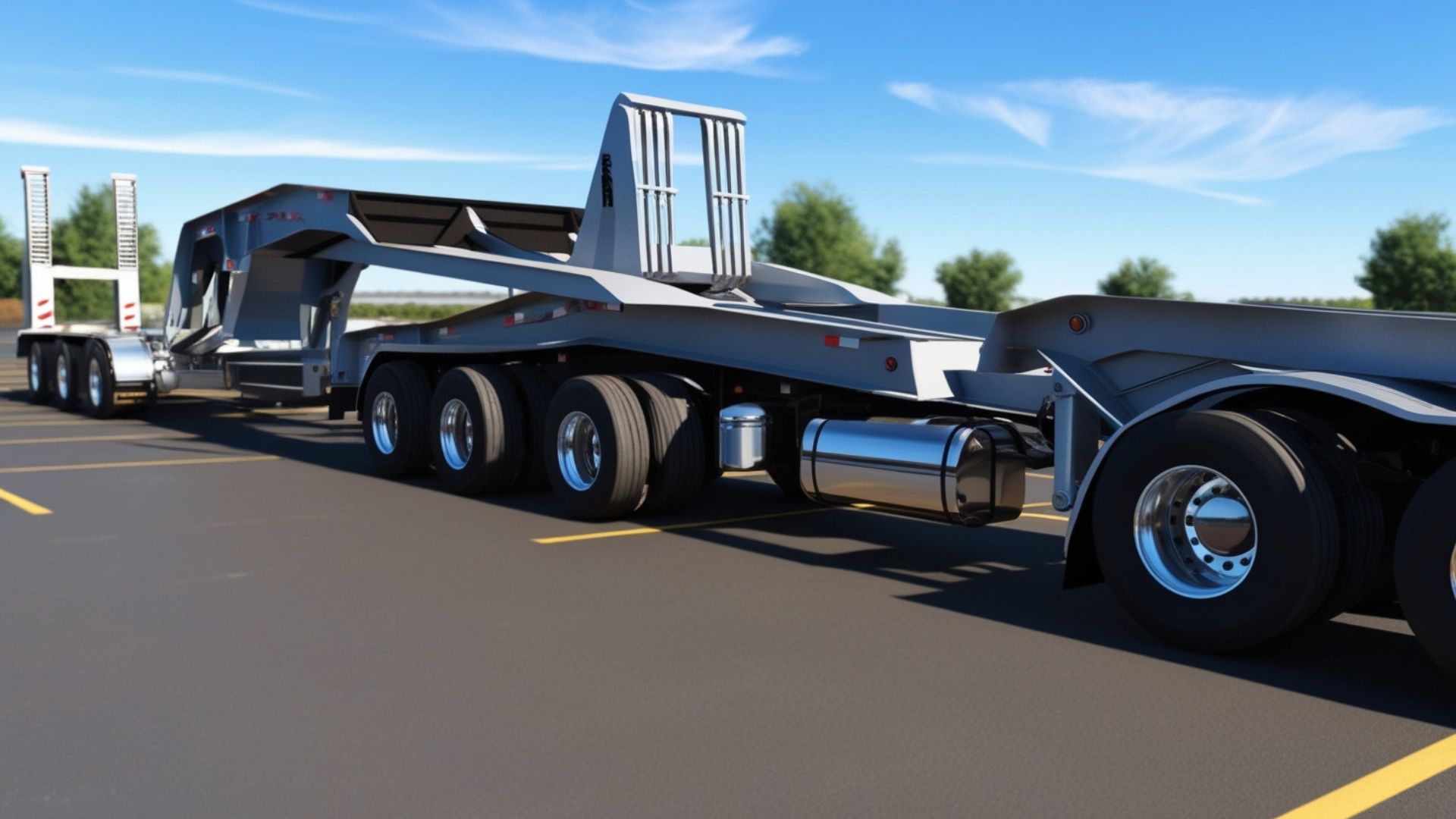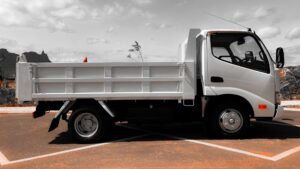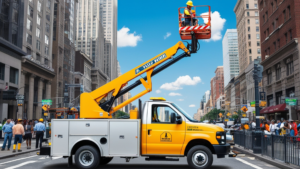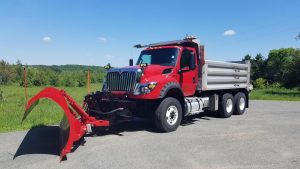Lowboy trailers are indispensable in the world of heavy hauling, providing the ability to transport oversized and heavy machinery efficiently and safely. Among these, the 100 ton lowboy trailer stands out for its immense capacity and robust design, making it a crucial asset in industries such as construction, mining, and heavy equipment transport. This article delves into the specifications, features, and applications of the 100-ton lowboy trailer, highlighting why it is a preferred choice for heavy-duty hauling.
What is a 100-Ton Lowboy Trailer?
A 100-ton lowboy trailer, also known as a low-bed trailer, is a type of flatbed trailer specifically designed to carry heavy and oversized loads that standard trailers cannot handle. The term “lowboy” refers to its deck height, which is lower than that of a standard trailer, allowing for the transport of taller loads while complying with height restrictions. The “100-ton” designation indicates the trailer’s maximum carrying capacity, making it suitable for transporting extremely heavy equipment.
Key Specifications
- Load Capacity: The primary specification of the 100-ton lowboy trailer is its ability to carry up to 200,000 pounds (100 tons). This high capacity makes it ideal for transporting large machinery, construction equipment, and other oversized loads.
- Deck Length: The deck length of a 100-ton lowboy trailer typically ranges from 24 to 30 feet, providing ample space for accommodating large loads. Some models offer extendable decks to handle even longer equipment.
- Deck Height: The low deck height, usually around 18 to 24 inches from the ground, allows for the transport of tall machinery while maintaining a low overall height. This feature is crucial for navigating under bridges and overpasses without requiring special permits.
- Axle Configuration: These trailers come with multiple axles to distribute the load evenly and ensure stability. A standard 100-ton lowboy trailer might have 8 to 12 axles, depending on the specific design and load requirements.
- Gooseneck: The gooseneck is a vital component of the lowboy trailer, connecting the trailer to the towing vehicle. It can be either detachable or fixed. Detachable goosenecks are preferred for their ease of loading and unloading heavy machinery.
- Material: High-strength steel is commonly used in the construction of 100-ton lowboy trailers, providing the necessary durability and strength to handle heavy loads over long distances.
- Suspension System: Advanced suspension systems, such as air ride or hydraulic suspensions, are employed to provide a smoother ride, reducing the risk of damage to the load and ensuring better handling.
- Braking System: Given the substantial weight these trailers carry, they are equipped with robust braking systems, including air brakes and ABS (Anti-lock Braking System), to ensure safe stopping and maneuvering.
Features and Benefits
- Versatility: The 100-ton lowboy trailer is highly versatile, capable of transporting a wide range of heavy equipment, including bulldozers, excavators, cranes, and industrial machinery. This versatility makes it a valuable asset across various industries.
- Ease of Loading and Unloading: The low deck height and detachable gooseneck facilitate easy loading and unloading of heavy equipment. The gooseneck can be detached, allowing the equipment to be driven onto the trailer from the front, which is especially useful for wheeled machinery.
- Stability and Safety: The multiple axle configuration and advanced suspension systems ensure stability during transit, minimizing the risk of accidents and damage to the load. The robust braking system further enhances safety, providing reliable stopping power.
- Cost-Effective Transportation: By accommodating extremely heavy loads in a single trip, the 100-ton lowboy trailer reduces the need for multiple hauls, leading to cost savings in fuel, labor, and time. This efficiency is particularly beneficial for large-scale construction and infrastructure projects.
- Compliance with Regulations: The design of lowboy trailers, with their low deck height and distributed axle load, helps in complying with transportation regulations, particularly those related to height and weight limits. This compliance is crucial for avoiding fines and ensuring smooth transit.
Applications
- Construction Industry: The 100-ton lowboy trailer is extensively used in the construction industry for transporting heavy machinery such as bulldozers, excavators, and concrete mixers. Its ability to handle oversized loads makes it indispensable for large construction projects.
- Mining Operations: In mining, heavy equipment like rock crushers, drilling rigs, and large conveyors need to be moved frequently. The 100-ton lowboy trailer provides the capacity and durability required for these demanding tasks.
- Industrial Equipment Transport: Industrial plants often require the relocation of large machinery, such as transformers, generators, and presses. The lowboy trailer ensures safe and efficient transport of these heavy components.
- Agriculture: Large agricultural equipment, including combines and tractors, are often transported using lowboy trailers. The high load capacity and low deck height make it easier to move these oversized machines between farms and fields.
- Oil and Gas Industry: The oil and gas sector frequently moves heavy drilling equipment and rigs. The 100-ton lowboy trailer’s strength and stability make it a preferred choice for these critical operations.
Conclusion
The 100-ton lowboy trailer is a powerhouse in the world of heavy hauling, offering unmatched capacity, durability, and versatility. Its specifications, including a high load capacity, low deck height, and multiple axle configurations, make it an ideal choice for transporting heavy and oversized equipment across various industries. With features that enhance stability, safety, and ease of loading, the 100-ton lowboy trailer stands as a testament to engineering excellence in heavy transportation. Whether in construction, mining, industrial transport, agriculture, or the oil and gas sector, this trailer is a crucial asset, ensuring efficient and cost-effective transportation of the heaviest loads.




